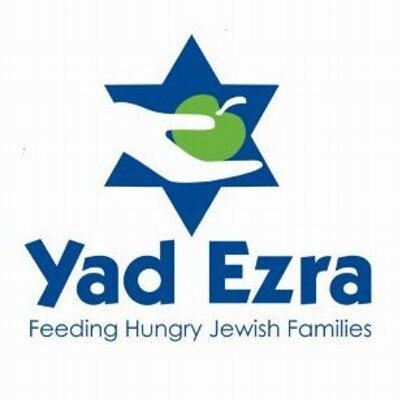Who
In 1990, Yad Ezra opened its doors to provide food insecure Jewish families in the metropolitan Detroit area with kosher food that was often unavailable through other programs. By distributing groceries on a monthly basis to families in need, Yad Ezra alleviates some of its clients’ financial burdens without forcing them to compromise their religious beliefs. In 1990, Yad Ezra served an average of 250 families monthly; current statistics indicate that the organization now provides approximately 1,300 impoverished families (almost 3,000 individuals) with food, health care items, and household goods on a monthly basis.
The Challenge
The U.S. economy may be improving since the Great Recession, but the recovery is still leaving behind many Americans who were hit the hardest. Even in the world’s greatest food-producing nation, children and adults face poverty and hunger in every county across America. Millions of people continue to struggle to support themselves and their families due to underemployment, stagnant wages, and rising costs of living.
According to the Food Bank Council of Michigan, 15% of Michigan residents and 18% of all children are considered food insecure. This translates into 1.6 million people in Michigan at risk of hunger. While federal programs such as SNAP and NSLP help provide a nutrition safety net and other critical assistance, federal nutrition assistance programs do not reach everyone at risk of hunger, and food banks and pantries remain a critical component of the solution.
Yad Ezra continues to play a critical role in supporting struggling families. Due to its strength as an organization, Yad Ezra is uniquely positioned to respond to this persistent problem and build on its already successful programs to serve more of those in need. In Spring of 2018, the organization engaged Mission Throttle to identify potential future strategies to increase financial sustainability and impact on its communities.
How We Helped
In Spring of 2018, Yad Ezra engaged Mission Throttle with the goal of increasing its financial sustainability and impact on its target communities. In Phase I, Mission Throttle used the following analyses to identify potential strategies for improvement: goal-setting and visioning session, operational and financial review, assessment of management team, analysis of social impact creation, and external research including a national scan of social enterprises’ best practices and revenue streams.
Our Impact
Mission Throttle examined a breadth of Yad Ezra’s internal documentation and spoke with members of its executive team, staff, and board to identify key trends and opportunities to accelerate its impact. Based on initial findings, Mission Throttle identified five market-based opportunities, that if implemented, can increase financial health and impact of Yad Ezra’s offerings.


